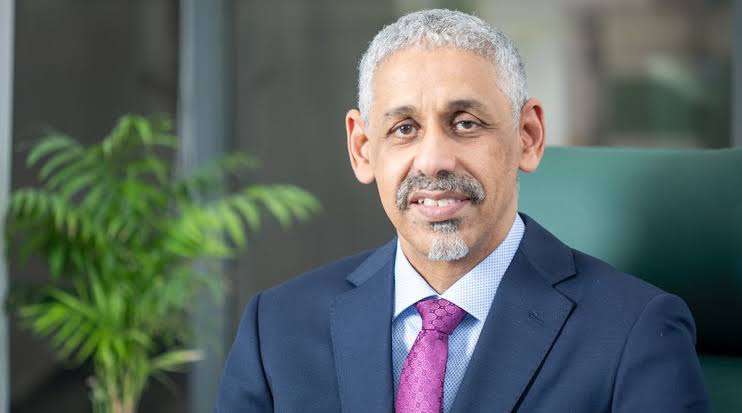Business
AfDB’s Sidi Ould Tah meets W’African finance ministers, pledges deeper cooperation, support for economic resilience

The President of the African Development Bank (AfDB), Dr. Sidi Ould Tah, has pledged to strengthen cooperation with key African countries to advance economic transformation, resilience, and inclusive growth across the continent.
Dr. Ould Tah made the pledge during a high-level meeting with the finance ministers of The Gambia, Ghana, Liberia, Sierra Leone, and Sudan on the sidelines of the 2025 Annual Meetings of the World Bank and International Monetary Fund (IMF) in Washington D.C.
The talks focused on addressing Africa’s debt challenges, promoting industrialisation, and advancing the priorities of the African Development Fund (ADF), the concessional arm of the AfDB Group, ahead of its 17th replenishment (ADF-17) scheduled to take place in London in December.
The ministers, who also serve as the Bank’s Governors, congratulated Dr. Ould Tah on his recent election as AfDB President and commended his strong record of leadership, citing his achievements as the former head of the Arab Bank for Economic Development in Africa (BADEA).
Ghana’s Finance Minister, Dr. Cassiel Ato Forson, described Ould Tah as “the right leader to take the African Development Bank Group to the next level,” noting his commitment to linking agricultural transformation with Africa’s emerging financial architecture and green industrialisation drive.
In a show of confidence, the ministers reaffirmed their countries’ commitment to the African Development Fund and pledged early support for ADF-17. Ghana announced it would fast-track its subscription payment and co-host a pledging session with the United Kingdom.
Gambia’s Finance Minister, Seedy Keita, confirmed his country’s intention to contribute to the fund, while Liberia’s Augustine Ngafuan and Sierra Leone’s Sheku Bangura pledged to make budgetary allocations toward the replenishment.
Sudan’s Finance Minister, Dr. Gibril Ibrahim, expressed appreciation for the Bank’s continued engagement during the country’s transitional phase and called for greater assistance in post-conflict recovery, particularly in energy, agriculture, and education.
The ministers also backed the Bank’s ongoing strategic priorities, including industrialisation, energy access, and private sector development. Sierra Leone’s delegation highlighted the significance of Mission 300, a joint AfDB, World Bank initiative aimed at extending electricity access to 300 million Africans by 2030 – as a game-changer for regional value chains and job creation.
On the issue of debt, the ministers voiced concern over the continent’s rising vulnerabilities and urged the Bank to deepen its support for debt sustainability and restructuring mechanisms. They also emphasised the need to address fragility, resilience, and youth employment under ADF-17.
Responding, Dr. Ould Tah reaffirmed that tackling debt distress and economic fragility are central pillars of his vision for a New African Financial Architecture, one designed to enhance Africa’s influence in global financial governance and direct more concessional and blended finance to vulnerable states.
“I deeply appreciate the confidence shown by our member countries,” Ould Tah said. “The commitments made today reflect Africa’s growing ownership of its development agenda and strong belief in the African Development Bank’s governance and strategic direction.”
He assured the ministers that the AfDB would continue to work closely with their respective governments to advance shared development goals across the continent.
The meeting marked one of Dr. Ould Tah’s first constituency engagements since assuming office, setting the tone for what the Bank describes as a renewed partnership era focused on resilience, inclusive growth, and sustainable development.


